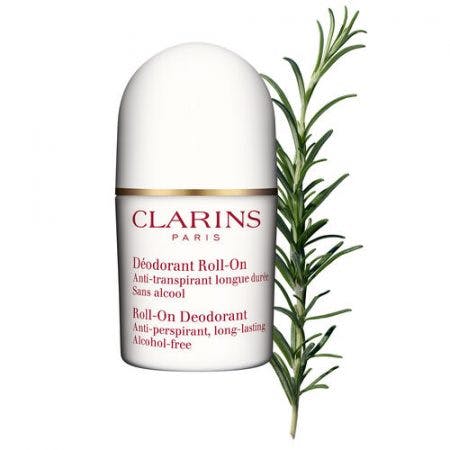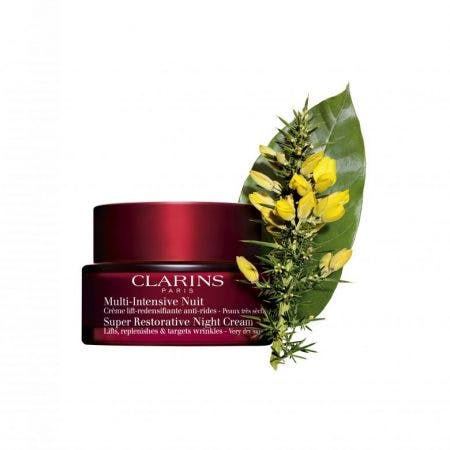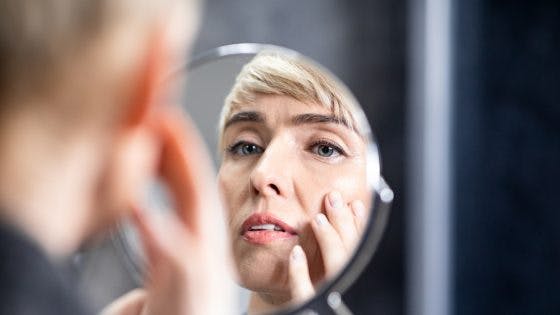Why Your Skin is Flaking And How To Remedy Fast
7 minutes read
Why is my skin flaking off? What causes your skin to start flaking? What does your skin flaking even mean? We have all the answers on how to remedy flaking, peeling and pilling skin.
The top layer of skin, the epidermis, is constantly creating new skin cells, and the scope of old cells, if not appropriately exfoliated, can look like skin flaking or peeling.
However, there is a multitude of reasons. First, it’s better to find the cause of your skin flaking. For different body zones, the meaning of the skin flaking can be different; also, it depends on the size or scale of flaking and other related symptoms.
The ten reasons behind flaking skin
Mainly, flaking starts when your skin gets too dry. Skin dryness means a lack of lipidic connection between the skin cells. As a result, dry skin loses its smoothness and becomes irritated, prone to flaking and peeling.
1. Make sure you don’t use harsh cleansing products
Gretchen Frieling, MD says that harsh soaps and detergents can remove the protective oily barrier and leave your skin dehydrated. If your skin is flaking, better to check not only the soap, shower gel, and the shampoo that you use and the laundry products.
The remedy:
If you suspect your cleansing products are harsh, pay attention to the gentle formulas and non-sulfate cleansing; learn how to care for sensitive skin.
2. Fragrance can cause skin peeling and flaking
Amy Forman Taub, MD claims that fragrances can cause skin dryness, irritation, and flaking. Many cosmetic products are filled with strong fragrances, which can provoke skin reactions and allergies.
The remedy:
Try to find delicately scented and alcohol-free products, like Gentle Care Roll-On Deodorant with a natural rosemary extract. You can use it even on sensitive skin after shaving, and it keeps your skin fresh and moisturised.

3. Retinol and salicylic acid may make it worse
Dryness is a common side effect after you start using salicylic acid, and retinol also weaken the connection between the skin cells on the top layer of skin, which causes irritation and dehydration.
The remedy:
If your skin is flaking, try to avoid these skincare ingredients or use them less often. It’s always better to start off slowly and build-up a tolerance – so aim for a couple of times a week to begin with and gradually build it up. Otherwise, take a professional dermatologist’s advice on the right treatment plan for your skin.
4. Dry air and weather conditions
You may notice that dry air, summer heat or winter cold can dehydrate your skin, and cause irritation and flaking. Forced air indoors can also make your skin feel dry and itchy.
The remedy:
During cold winter and hot summer, it’s essential to moisturise your skin well. When the conditioner or heating system makes indoor air dry, invest in a scientifically-proven beauty tool – the air humidifier can really help. We love Dyson’s version here.
5. Flaking after a hot shower?
Long, hot showers are not serving your skin well. Again, hot water can remove the protective barrier and cause a lack of hydration.
The remedy:
Just try to reduce the water temperature and the time you spend in a shower. After washing, apply body moisturiser on a damp skin. And invest in a shower head that changes colour if the water is too hot.
Mira Showers suggests: “It’s generally advised to keep the average shower temperature between 37°C and 38.3°C. The Chartered Institute of Plumbing and Heating Engineering recommends that this shouldn’t exceed 41°C, and that 37°C should be the maximum showering temperature for babies. Any hotter than this, and you might find that your skin gets dry and itchy, and your blood pressure might drop, causing you to feel lightheaded.”
6. Hard water can be a possible reason of skin flaking
Dennis Gross, MD claims that heavy metals in water prevent moisturisers from absorbing; and a high concentration of minerals in water causes skin dryness.
The remedy:
A water filter could be the best solution. After washing your face, you can also use a toner to reduce the negative impact and restore the skin barrier and balance pH levels that stop the skin from feeling tight and itchy.
7. Skin peeling is a sign of ageing?
The Mayo Clinic notes that ageing skin starts producing less oils, that’s why it gets less moisturised and sometimes flaking.
The remedy:
If you noticed that your skin started getting dry and flaking after a certain age, then you should stick to anti-ageing skincare.
Deep moisturising is the key to caring for mature skin. Super Restorative Night Cream is recommended for very dry skin challenged by hormonal changes. This cream helps to moisture and nourish your skin, lift the contours and give radiance.

Read next: Treatment For Wrinkles Above The Lip & How To Rejuvenate Your Mouth
8. Your Skin is flaking post sunburn
The top layer of your skin can be flaking after sunburn, and it’s a part of a healing process. First you get pink, red or burgundy-looking skin, then the dead skin cells come away at a rapid pace. The peeling process comes together with an itching, irritation, burning and sometimes a temperature rise.
The remedy:
First, learn the lessons on how to protect your skin against burn. When it’s already happened, take cold showers and compresses to relieve the pain; use aloe gel and other moisturisers to hydrate damaged skin; avoid direct sunlight and wear protective clothing; drink extra water to avoid dehydration. Take pain killers if necessary and as soon as your moisturised layer starts to sink in and disappear – apply more.
9. The skin on your hands is falling off
Among other reasons of skin flaking, hand skin flaking may happen after excessive handwashing, nibbling the skin and nails, or contact with domestic chemicals.
The remedy:
It’s time to give up on bad ‘nervous‘ or OCD habits, such as biting fingers and nails and overzealous hand washing. Avoid soaps that contain parabens, sulphates and triclosan, and always remember to wear protective gloves when doing the housework or gardening.
10. What causes flaking skin on feet?
Skin on feet is often dry, rough, and flaking. But if you have excessive symptoms, itching, or irritation, you must take a medical advice to exclude such conditions as hyperhidrosis, eczema, psoriasis or athlete’s foot Read our guide on ‘how to remove dead skin from your feet’, for everything you need to know.
The remedy:
If you consulted a medical specialist and excluded certain medical conditions, your feet only need physical exfoliation and moisturising cream. Book in for podiatry or chiropody appointment — or treat yourself to a medi-pedi by somebody like Margaret Dabbs, Bastian Gonzales or Flawless Feet.
How to stop your skin from flaking under make-up
Face skin flaking is very noticeable, so if you try to cover it with make-up, this can aggravate the issue. How to stop skin flaking under make-up? Try some of the dermatologist’s and make-up artists’ tips to avoid the cakey and crusty effect.
- Use a moisturising cleansing product not to disrupt the skin’s barrier.
- Exfoliate your skin from time to time with gentle products (for example, which contain AHA acids as opposed to something more granular) to remove the dead skin cells.
- Moisturise your skin every time after washing your face; massage oil into a damp face to seal in moisture.
- Use a hydrating toners or serums and a moisturising primer.
- If your skin is flaking under make-up, better to choose creamy and moisturising products rather than dry powders.
- Try to apply your foundation with a wet sponge instead of a brush and dab instead of dragging skin around to help keep flaky skin more in place.
Why is my skin flaking on my eyebrows
The main reasons for flaking skin on eyebrows are:
- Eyebrow dandruff or seborrheic dermatitis is similar to dandruff on the head, and is caused by Malassezia fungus. It can be solved by using anti-dandruff products, but consult with a dermatologist before using any.
- Contact dermatitis means a reaction to an allergen, or maybe you have come into contact with an irritant — this could be make-up or hair care product, or even a hat or headscarf. In this case, pay attention to what has come into contact with your eyebrows.
- Dry skin often occurs in this zone, so do not forget to moisturise your eyebrows with your face cream and protect them with sunscreen — yes, your eyebrows need SPF, too!
There you have it. Here’s hoping your skin flakiness has been solved.
Sign up for our newsletter
We will keep you in the loop for special offers, exclusive gifts and product news.

